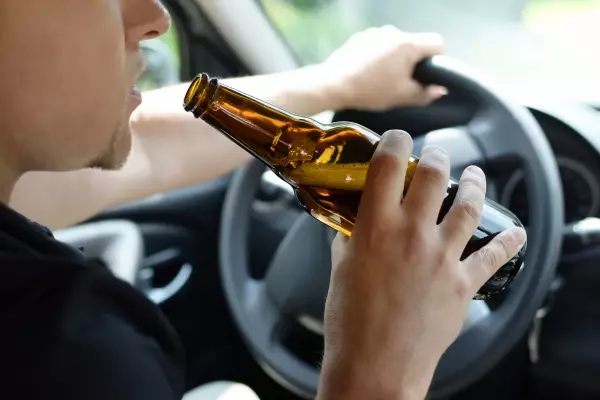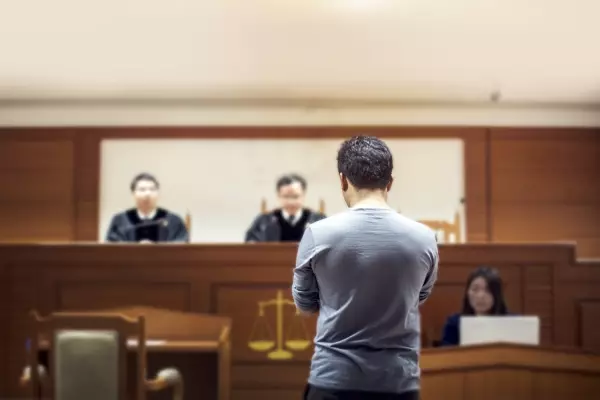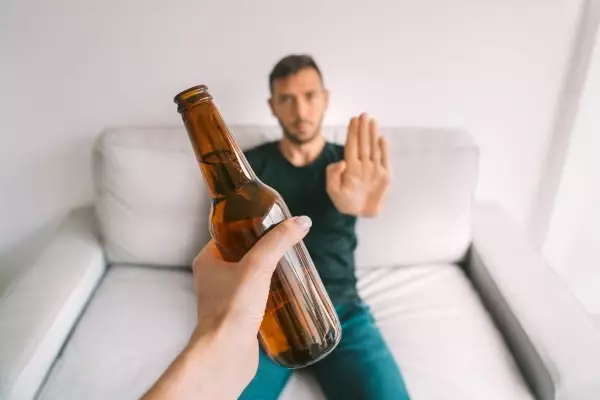The penalties and sentences for alcohol-related crimes in Pennsylvania vary depending on the offense. For example, driving under the influence (DUI) is typically punishable by fines, jail time, and a suspension of your driver’s license. If you are convicted of DUI, you may also be required to attend alcohol education classes or treatment programs.
If you’ve been arrested for an alcohol-related crime in Pennsylvania, you’re probably concerned about what penalties and sentences you could face. Well, good news—there is good and bad news. The bad news is that you will likely face some legal consequences for your actions. The good news is that your specific punishment will depend on several factors.
This article will explain the various penalties and sentences related to alcohol crimes in Pennsylvania, including general consequences for drinking or possessing alcohol underage or while driving under the influence, as well as potential fines or jail time based on the circumstances of your arrest. Keep reading to learn more.
What are Alcohol crimes?
The most common alcohol crimes related to underage drinking: are possession and consumption. Other common alcohol crimes include drunk driving, public intoxication, and furnishing alcohol to minors.
All of these crimes are regulated by state law and are taken very seriously by law enforcement and the courts. Possession is any situation in which an individual controls an alcoholic beverage and can consume it. Consumption generally refers to taking a drink.
Driving under the influence (DUI) refers to operating a vehicle while intoxicated by alcohol. Public intoxication is what it sounds like: consuming enough alcohol to become drunk in a public place. And furnishing alcohol to minors refers to providing a child under the age of 21 with access to alcohol.
What Is The Legal Limit For Drinking And Driving In Pennsylvania?
The state’s motor vehicle code governs Pennsylvania's DUI offenses, penalties, and sentences.
The legal limit for drinking and driving in Pennsylvania is 0.08%. Every state has some version of this law, and it’s a good rule of thumb for those who choose to drink.
The consequences for driving under the influence in Pennsylvania can vary greatly, depending on several factors, including the circumstances of your arrest, BAC level, whether you have a prior DUI conviction, and more.
Gnerally speaking, first-time DUI offenders result in fines of around $300, at least 40 hours of community service, and a drinking education course completion. Second-time DUI convictions are considered more severe and could result in fines of more than $1,000, at least 80 hours of community service, and a minimum of six months of license suspension.
The third or subsequent offense is grave, and the penalties are comparable to those for a felony conviction. A third DUI conviction could result in fines of up to $10,000, a year or more in jail, and a minimum of five years of license suspension.
Knowing Your Rights Is Key To Avoiding Penalties
If you’re facing charges for an alcohol-related crime, you may wonder how you got there. Well, much of it concerns how you were approached by law enforcement.
For instance, you shouldn’t be approached in a car unless there is a reason to believe that you’ve broken the law. If you are in your vehicle and are approached, the officer must have probable cause to believe that you have broken the law.
If here is no probable cause for the stop, anything that happens during the stop is considered illegal. It is also against the law for any individual to coerce you into taking a breathalyzer test.
This includes police officers, attorneys, and judges. If you feel coerced into taking a breathalyzer test, you should speak with a criminal defense attorney as soon as possible.
What Are The Penalties For Underage Drinking In Pennsylvania?
You could face a $50 fine and a six-month suspension of your driver’s license for a first-time underage drinking offense. For a second offense, you could be charged with a summary offense, which is less severe than a misdemeanor and could result in a fine of up to $300.
For a third offense, you could be charged with a misdemeanor and face fines of up to $500 plus court costs. Additional penalties may also apply if you were driving a vehicle while underage and drinking or if you were underage and possessed alcohol in a public place.
Possession Of Alcohol By A Minor
Possession of alcohol by a minor is also a criminal offense in Pennsylvania. If caught with alcohol as a minor, you may be fined and sentenced to community service.
Possession of fake identification (ID) cards is also a crime in Pennsylvania. Penalties for this offense can include a fine and imprisonment.
A DUI arrest can be a very frightening experience, especially if it’s your first time. It’s important to know your rights and to understand the penalties you may be facing clearly. If you have been charged with an alcohol-related offense, contact a criminal defense attorney as soon as possible to discuss your options.
Supplying Alcohol To Minors
Supplying alcohol to minors is a crime known as “contributing to the delinquency of a minor.” The penalties for this offense can include a fine and imprisonment.
It is also a crime to sell, manufacture, deliver, or possess controlled substances. The penalties for this offense can include a fine and imprisonment.
Penalties For Driving While Intoxicated In Pennsylvania
Driving under the influence (DUI) is considered a serious crime in Pennsylvania.
A first-time DUI conviction is a misdemeanor and could result in fines of up to $2,000, up to one year in jail, and a minimum of one year of license suspension.
A second DUI conviction is also a misdemeanor and could result in fines of up to $5,000, up to two years in jail, and a minimum of five years of license suspension.
A third DUI conviction is a felony and could result in fines of up to $10,000, up to five years in prison, and a minimum of five years of license suspension.
A DUI offense can also be considered a “wobbler” offense, which means that it can be charged as either a misdemeanor or a felony, depending on the circumstances of the case.
For example, if you are convicted of DUI, and your blood alcohol content (BAC) is .16% or higher, you will be charged with a felony. If you are convicted of DUI and have a minor in the car with you at the time of the offense, you will also be charged with a felony.
Penalties For Being In Possession Of An Alcoholic Beverage While Driving
Being in possession of an alcoholic beverage while driving is a misdemeanor and could result in fines of up to $300 and a one-year suspension of your driver’s license.
The Alcohol Highway Safety School is a 12-hour course that you may be required to take if you are convicted of DUI. The cost of the course is $350. You will also be required to pay a $50 fee to reinstate your driver’s license.
Drug and alcohol treatment for DUI offenders is also required in Pennsylvania. The cost of treatment will vary depending on the length and type of treatment you need.
Other Penalties For Alcohol-Related Crimes In Pennsylvania
Other penalties for alcohol-related crimes in Pennsylvania could include restitution if you were involved in an accident while intoxicated and had to pay for damages or injuries. You may also have to complete an alcohol education program.
DUI penalties are enhanced if your BAC is .10% or higher, you are driving with a minor in the car, or you refuse to take a chemical test. Penalties for these offenses include longer jail sentences, larger fines, and longer license suspensions.
If you are convicted of DUI, you will also be required to have an ignition interlock device (IID) installed on your vehicle. An IID is a device that prevents a car from starting if the driver has been drinking. You must have an IID installed on your vehicle for at least six months.
The driver's license suspension period for a first offense is one year. The driver's license suspension period for the subsequent DUI offense is five years. The driver's license suspension period for a third DUI offense is 10 years.
Other Consequences Of An Alcohol Crime Arrest
In addition to potential fines and jail time, an alcohol crime arrest could have serious long-term consequences for your future. For example, an arrest for driving under the influence is a mandatory one-year driver’s license suspension.
An arrest for underage drinking could lead to a criminal record that impacts your ability to get into certain schools, obtain certain types of employment, or travel abroad. Having a criminal record could also make it more challenging to get a job in the future.
You may also lose certain rights if you’re convicted of a crime. For example, if you’re convicted of a felony, you could lose your right to vote, serve on a jury, or own a firearm.
SR-22 and Alcohol Assessments
The SR-22 is a form that must be completed by anyone who owes money to the state or federal government. It is often used as an initial way to determine whether an individual is eligible for public assistance, such as cash assistance. The SR-22 is also used in cases where someone owes taxes, such as income tax and sales tax.
The purpose of the SR-22 is to verify that someone has the funds to pay back the state or federal government for any debts owed. The information on the form is used by agencies responsible for collecting debts to help them identify who needs help.
There are two types of SR-22s: The regular SR-22, which involves paying all required fees; and the simplified SR-22, which only requires some of the required fees and does not require a hearing.
The regular SR-22 form requires payment of an annual fee along with filing an application and submitting supporting documentation. The simplified form requires only a filing fee along with submitting supporting documentation.
An IID, alcohol assessment, or SR-22 are all penalties that could be imposed if you are convicted of an alcohol crime in Pennsylvania. It is important to understand the penalties associated with your specific case and work closely with an experienced criminal defense attorney to protect your rights.
Facing any type of criminal charges can be overwhelming and frightening, so it is vital to have an advocate you can trust to give you the best legal advice and guidance.
If you have been charged with an alcohol-related crime in Pennsylvania, contact a criminal defense attorney as soon as possible for help defending your rights and avoiding penalties. A qualified attorney will be able to provide the legal advice and assistance necessary to protect your freedom and future.
Final Thoughts
You’ve undoubtedly heard that alcohol is dangerous, and these statistics prove it. In Pennsylvania, approximately 46 people die due to alcohol-related deaths every day.
In ddition, more than 35,000 people are injured in alcohol-related crashes yearly. If you choose to drink, do so responsibly, and always be aware of the potential consequences.
If you’ve been arrested for an alcohol-related crime and are unsure how to proceed, you should talk to a criminal defense attorney as soon as possible.
The PA DUI penalties are serious and can have a lasting impact on your life. If you have been charged with an alcohol-related offense, you must contact an experienced criminal defense attorney who can help you navigate the legal system and protect your rights.




